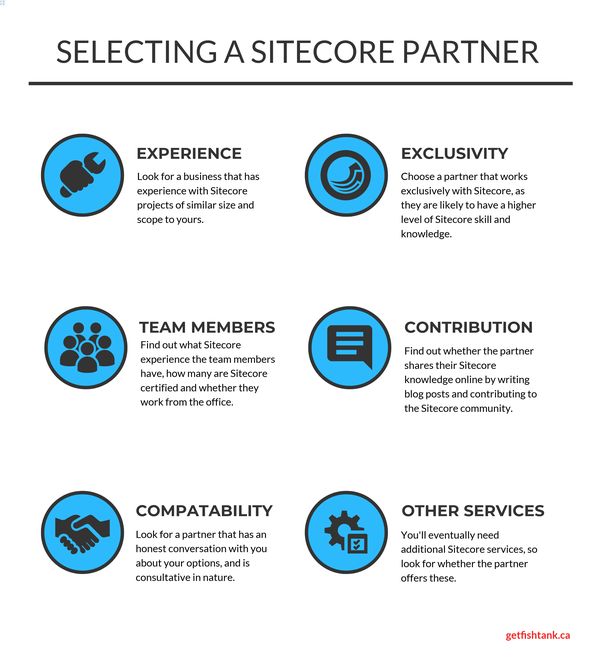You’ve decided to go with Sitecore as your CMS. Congratulations! You’ve taken the first step to levelling up your digital presence with a CMS that’s at the forefront of technology, marketing and customer experience.
Now you need to select a Sitecore partner for your implementation. This is one of the biggest commitments in your Sitecore journey, so it’s important to do thorough research beforehand and know what to look for in a potential Sitecore partner. Selecting the right partner from the beginning can save you plenty of time, money and frustration.
There are a lot of businesses out there claiming that they can do Sitecore implementations, so it can be overwhelming choosing the right one. Well relax, because we’ve put together a simple guide of the 6 most important things to consider when selecting a Sitecore partner.
1. Experience
This one goes without saying. Look for a business that has experience with many different Sitecore projects, particularly projects of similar size and scope to yours. There are many businesses out there claiming to be Sitecore partners, but when it comes down to their experience, they have nothing to show for it.
2. Exclusivity
Choose a partner that works exclusively with Sitecore. A business that implements several different CMS platforms won’t have the same level of skill and knowledge as one who specializes exclusively with Sitecore. A lot of agencies that work with different CMS platforms outsource to contractors in overseas countries like India, so you’ll never get first-hand information from them, and your project could end up very messy and costly.
3. Who’s On The Team
Ask who will be working on the team and what Sitecore experience they have. A big team doesn’t mean better. When there are too many people on the project, things can get messy and you end up paying for unnecessary attendance at meetings. Instead, find out how many team members are Sitecore certified, if they work locally in the office, and how many, and what kind of Sitecore projects they’ve worked on.
4. Sitecore Community Involvement
Look beyond flashy marketing materials and sales pitches. Find out whether the business shares their Sitecore knowledge online. Do they write blog posts to benefit other Sitecore users and developers? Are they active in the online Sitecore community? Does the business have a Sitecore MVP? Look for a business that’s at the forefront of thought leadership, up to date on new features and releases, and is sharing their knowledge for free online. This is a good way to weed out the businesses that focus only on business development, unnecessary up-selling and shiny marketing tactics.
5. Compatibility
Don’t underestimate this one. Have a good chat with the agency and discuss the problems your business is having. Look for a partner that has an honest conversation with you about your options, and is consultative in nature. The initial conversation should be a discussion of your options - not a sales pitch, and the people you talk to should seem genuine and interested in your business and project.
6. Long-Term Relationship Opportunity
Look for a partner that won’t just leave you when the code is complete. Find a partner that you can see your business having a long-term relationship with. You'll eventually need additional Sitecore services, so look for whether the business offers maintenance and support, hosting services, marketing automation/personalization, content authoring and any other services you think you'll eventually need, not just as part of your implementation project but beyond.

If you're looking for a Sitecore partner, we'd love to hear from you. Reach out to us at [email protected] to start having an honest conversation about a Sitecore implementation for your business.



